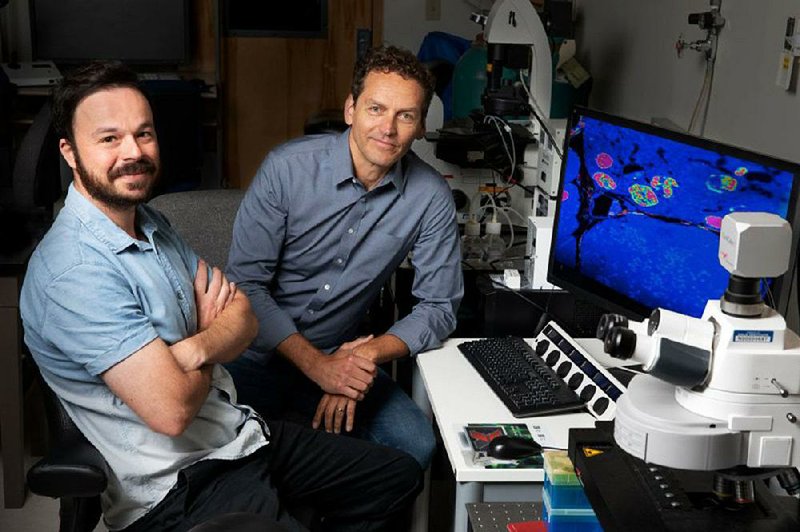Cells as old as the body itself predominate in the mouse brain. But they are also found in other organs, according to a study led by scientists from the Salk Institute and UC San Diego. Moreover, some mouse organs contain a mixture of old and young cells, and even old and young proteins.
If the findings can be extended to people, it could have big implications for regenerative treatments, said Martin W. Hetzer and Rafael Arrojo e Drigo of the Salk Institute. They led the study with Mark Ellisman, a UCSD neuroscientist.
Understanding the function of this mosaic structure could illuminate things that go wrong in the aging process. It could also inform production of new organs and tissues from stem cells, the researchers said.
For the study, published June 6 in the journal Cell Metabolism, the scientists compared the age of neurons in the brain with that of cells in the liver and pancreatic islets. The great majority of liver cells appeared to be as old as the mice themselves. This was surprising, because the liver is known to have great regenerative powers. But some liver cells, called stellate-like cells, were much younger than others.
The picture was more complicated in the pancreatic islets, where insulin-making cells live. These were found to be a true mosaic of old and younger cells. Some insulin-making beta cells were as old as neurons, and did not divide. Other apparently identical beta cells were young as a result of cell division.
Beta cells are destroyed in Type 1 diabetes by an autoimmune response. Precisely how they are killed and how they might be induced to regenerate is being intensively studied.
Moreover, islet delta cells, which make a hormone called somatostatin, didn't divide at all -- they were as old as neurons. Among its functions, somatostatin inhibits production of insulin and growth hormone, and slows digestion.
The study is very well done, Irina Conboy, a bioengineering professor at UC Berkeley, said. "It is clear and unambiguous; and the few limitations are addressed within the text (this is very refreshing, as in other / most papers the strengths are at times exaggerated).
"In my view, this confirms what I have been saying at numerous scientific meetings ... namely, we have relatively young cells even in the old mammals (mice and people alike); and these cells can rejuvenate the rest of the body if we understand and enhance their regenerative capacity," said Conboy, who was not involved in the study.
The study suggests that stem and progenitor cells are younger than the rest of the organ, Conboy said. Moreover, different organs in the same body might be of different molecular ages.
Cell ages were determined with the help of new imaging technology from the lab of co-author Ellisman, the UCSD neuroscientist. Ellisman runs the National Center for Microscopy and Imaging Research at UCSD.
The imaging was done using a rare and stable isotope of nitrogen, N15. Female mice were fed chow containing the isotope, then mated with a male mouse. They were given the isotope-containing chow during their pregnancies.
Since the mouse pups had a fixed amount of N15 in their cells, this served as a marker for cell age, Hetzer said. The oldest cells had the most N15, younger cells lesser amounts.
Researchers are now looking for other ways to determine cell ages that would be feasible to use in people.
"The next step to look for transcriptional changes or other morphological features that would allow us to distinguish a young from an old cell," Arrojo e Drigo said.
Study funders included the National Institutes of Health, the Keck Foundation and the Nomis Foundation.
ActiveStyle on 07/01/2019

